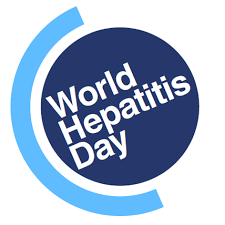
World Hepatitis Day 2026

World Hepatitis Day: Uniting in the Fight Against a Global Health Threat
World Hepatitis Day, observed on 28th July each year, is a global initiative to raise awareness about viral hepatitis, promote prevention, and encourage testing and treatment. The World Health Organization (WHO) and partners across the globe come together to highlight the urgency of eliminating hepatitis by 2030. This article delves into the significance of World Hepatitis Day, the types of hepatitis, prevention methods, available treatments, and how you can get involved.
Understanding Hepatitis
Hepatitis is an inflammation of the liver, often caused by viral infections. Five main strains of the hepatitis virus – A, B, C, D, and E – are responsible for the majority of cases. Hepatitis B and C are the most common, accounting for over 90% of hepatitis-related deaths. Chronic hepatitis infections can lead to severe health issues, including cirrhosis, liver cancer, and liver failure. According to WHO estimates, approximately 325 million people worldwide live with chronic hepatitis, and over 1.3 million deaths occur annually due to hepatitis-related complications.
The Importance of World Hepatitis Day
World Hepatitis Day, launched in 2008, aims to raise awareness about the global burden of viral hepatitis and to foster partnerships for its elimination. The day is an opportunity to:
- Increase public understanding of viral hepatitis, its transmission, prevention, and treatment.
- Encourage governments to prioritise hepatitis policies and funding.
- Amplify the voices of people living with viral hepatitis and affected communities.
- Highlight the progress made in viral hepatitis elimination efforts.
Each year, World Hepatitis Day adopts a theme to focus the campaign. In recent years, themes have included "Eliminate Hepatitis" and "Hepatitis Can't Wait," emphasising the importance of timely action.
Getting Involved in World Hepatitis Day
There are several ways to participate in World Hepatitis Day and support the global effort to eliminate viral hepatitis:
- Educate yourself and others: Learn about hepatitis, its types, transmission, prevention, and treatment. Share this information with your friends, family, and community to raise awareness.
- Get tested and vaccinated: Encourage those around you to get tested for hepatitis, especially if they are at risk. Vaccination for hepatitis A and B is crucial for prevention, and early detection and treatment of hepatitis C can lead to a cure.
- Advocate for change: Reach out to your local and national government representatives, urging them to prioritise hepatitis policies, funding, and public health initiatives. Encourage them to implement WHO's Global Health Sector Strategy on Viral Hepatitis to achieve the goal of elimination by 2030.
- Support organisations: Donate to or volunteer with organisations working to eliminate hepatitis, such as the World Hepatitis Alliance, Hepatitis B Foundation, or local charities in your area.
- Raise awareness on social media: Use your social media platforms to spread the word about World Hepatitis Day. Share facts, infographics, and stories of those affected by hepatitis. Use the official campaign hashtags and materials to amplify your message.
World Hepatitis Day aligns particularly with three SDGs: Good Health and Well-being (SDG 3), Partnerships for the Goals (SDG 17), and Reduced Inequalities (SDG 10).
- Good Health and Well-being (SDG 3): This goal aims to "ensure healthy lives and promote well-being for all at all ages." World Hepatitis Day contributes to this goal by encouraging early detection and treatment of hepatitis and promoting prevention through vaccination. The initiative aims to reduce hepatitis-related mortality, thus contributing to healthier lives globally. Moreover, the objective to eliminate hepatitis by 2030 directly correlates with Target 3.3 of SDG 3, which calls for the end of epidemics of AIDS, tuberculosis, malaria, and neglected tropical diseases, and combat hepatitis, water-borne diseases, and other communicable diseases by 2030.
- Partnerships for the Goals (SDG 17): World Hepatitis Day fosters global cooperation to tackle the hepatitis epidemic. It strengthens partnerships between governments, international organizations, and civil society to support the sharing of knowledge, expertise, technology, and financial resources. This multi-stakeholder collaboration is essential for successful hepatitis elimination and aligns with the SDG 17 objective to revitalize global partnerships for sustainable development.
- Reduced Inequalities (SDG 10): Hepatitis disproportionately affects marginalized populations due to issues like inadequate healthcare and sanitation. The mission of World Hepatitis Day to ensure universal access to hepatitis services, including prevention, testing, and treatment, contributes to SDG 10's objective to reduce inequality within and among countries.
World Hepatitis Day Themes
| Year | Theme | Description |
|---|---|---|
| 2019 | Invest in Eliminating Hepatitis | Focused on increasing political and financial support to scale up testing, prevention, and treatment services, and supported the #FindTheMissingMillions campaign. |
| 2020 | Hepatitis-free Future | Promoted the goal of hepatitis elimination by 2030, with focus on mother-to-child transmission, access to care, and resilience during the COVID-19 pandemic. |
| 2021 | Hepatitis Can’t Wait | Stressed the urgency of immediate action in testing, vaccination, and treatment, even amidst the global COVID-19 crisis. |
| 2022 | I Can’t Wait | Highlighted individuals' urgent need for hepatitis services and accelerated efforts toward the 2030 elimination goal. |
| 2023 | We’re Not Waiting | Called on individuals, communities, and governments to take responsibility for accelerating hepatitis elimination efforts. |
| 2024 | It’s Time for Action | Emphasized collective global action to eliminate hepatitis as a public health threat through unified and immediate steps. |
| 2025 | Hepatitis: Let’s Break It Down | Focused on addressing the barriers to prevention, testing, and treatment while calling for urgent global action toward hepatitis elimination by 2030. |
